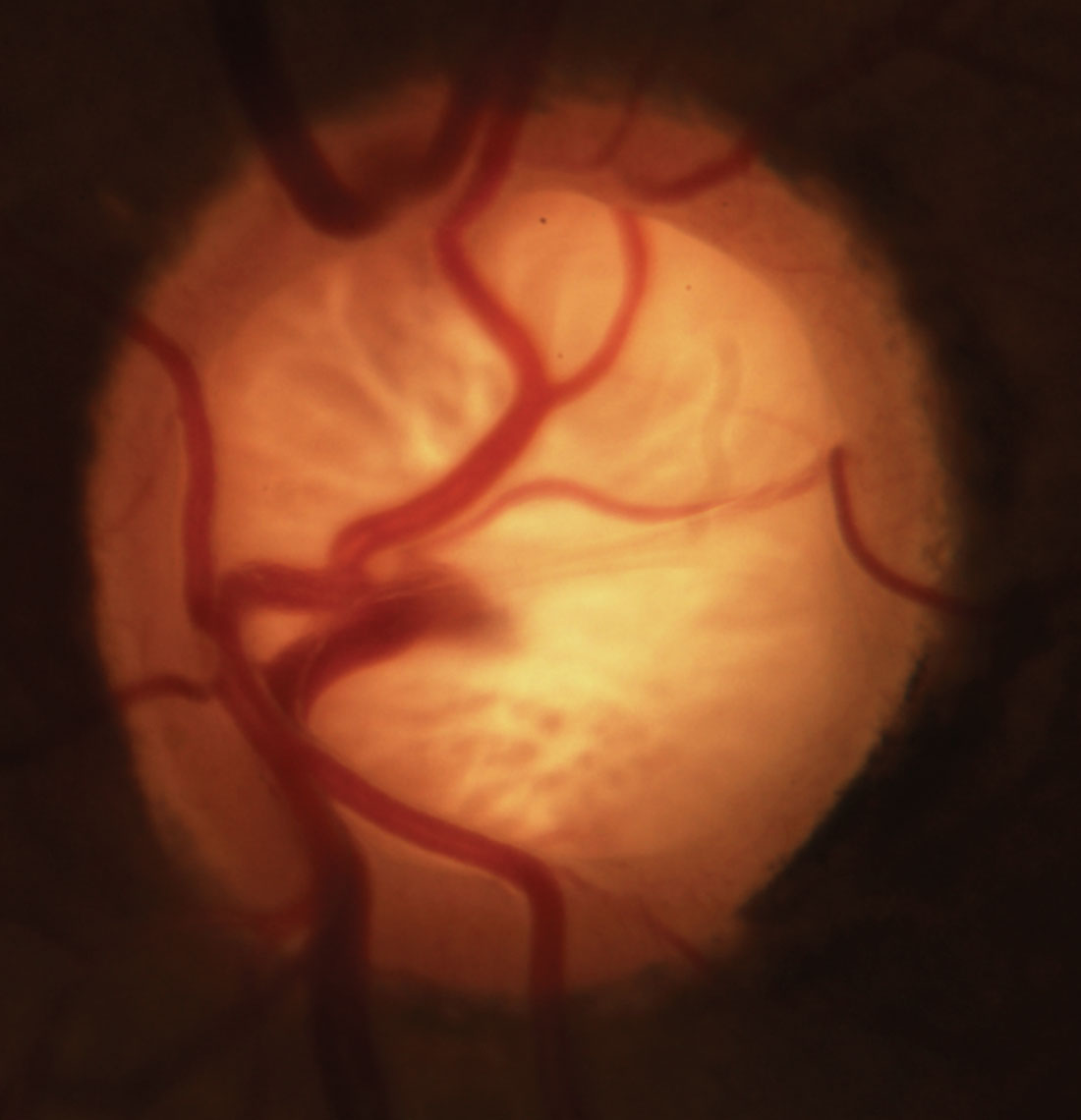 |
Low estrogen levels may lead to an increased risk of POAG. Photo: Michael Dorkowski, OD. Click image to enlarge. |
Research on primary glaucoma, the leading cause of irreversible visual field (VF) defect and blindness, is continually identifying new risk factors associated with the pathogenesis of, specifically, primary open-angle glaucoma (POAG). Recent literature has suggested women may be more prone to progression and development of this type of glaucoma, likely due to a hormonal cause. A previous study observed decreased estrogen as a risk factor for POAG. To follow-up on these findings, researchers performed both a cross-sectional and a cohort study on sex hormone levels in women with POAG and found decreased estrogen level was associated with both the condition and VF progression.
The studies enrolled 63 women with POAG and 56 healthy women as controls. Fifty-seven women with POAG followed up for at least two years and were included in the cohort study. Upon arrival at the study hospital, each patient was evaluated for serum concentration of the following sex hormones: prolactin, luteinizing hormone, testosterone, follicle-stimulating hormone, progesterone and estrogen. POAG patients in the cohort study also underwent VF examinations at baseline and during follow-up visits at six, 12, 18 and 24 months. All POAG patients received IOP-lowering medication, and none had surgical intervention during follow-up. None of the women had systemic diseases or were taking drugs that could affect sex hormone levels.
Results of the cross-sectional study showed that estrogen levels were significantly lower in POAG patients than in healthy controls (136.24pg/mL vs. 235.89pg/mL). This finding was observed in both the premenopausal group (223.03pg/mL vs. 389.30pg/mL) and the postmenopausal group (27.76pg/mL vs. 31.34pg/mL) compared with healthy controls.
These findings were reflected by the data from the cohort study; there were 29 non-progression subjects and 28 progression subjects, the latter of which were observed to have significantly lower levels of estrogen than those with no progression (26.99pg/mL vs. 211.26pg/mL). The researchers concluded after adjusting for multiple confounding variables that this decreased level of estrogen at baseline in POAG subjects supports an association with POAG progression, especially in premenopausal women.
Lower VF non-progression rates were also observed in POAG patients with lower baseline estrogen levels in the cohort study; however, the association was only statistically significant in premenopausal subjects. The researchers also noted that the data suggests estrogen may not be the only sex hormone affecting the risk of progression in primary glaucoma.
The team found that the circulation levels of progesterone, LHluteinizing hormone follicle-stimulating hormone and testosterone “were also significantly associated with the onset and/or development of POAG, indicating that sex hormones might jointly influence POAG pathogenesis,” the researchers wrote.
“Furthermore, for the first time, we have shown that an increased [estrogen] level slows the progression of VF loss in POAG,” they continued, noting that the hormone “is thought to play an important role in neuroprotection, which has been reported in various central nervous system injuries. One study showed that the predicted outcome and recovery were better in female patients than in male patients after traumatic brain injury.”
The researchers concluded that a decreased estrogen level in women is a risk factor for POAG and has a significant effect on VF progression, especially in premenopausal subjects. “Therefore,” they conclude estrogen “might be a new predictor of POAG onset and VF progression, which is helpful in guiding clinical treatments and evaluating prognosis.”. Moreover, the other sex hormones that showed an association might play a role in the pathogenesis and progression of POAG. “Further prospective multicenter, longitudinal studies and biological experiments are warranted to confirm our results and elucidate the underlying mechanisms."
Qiu Y, Yu J, Tang L, et al. Association between sex hormones and visual field progression in women with primary open angle glaucoma: a cross-sectional and prospective cohort study. Front Aging Neurosci. December 24, 2021. [Epub ahead of print]. |


